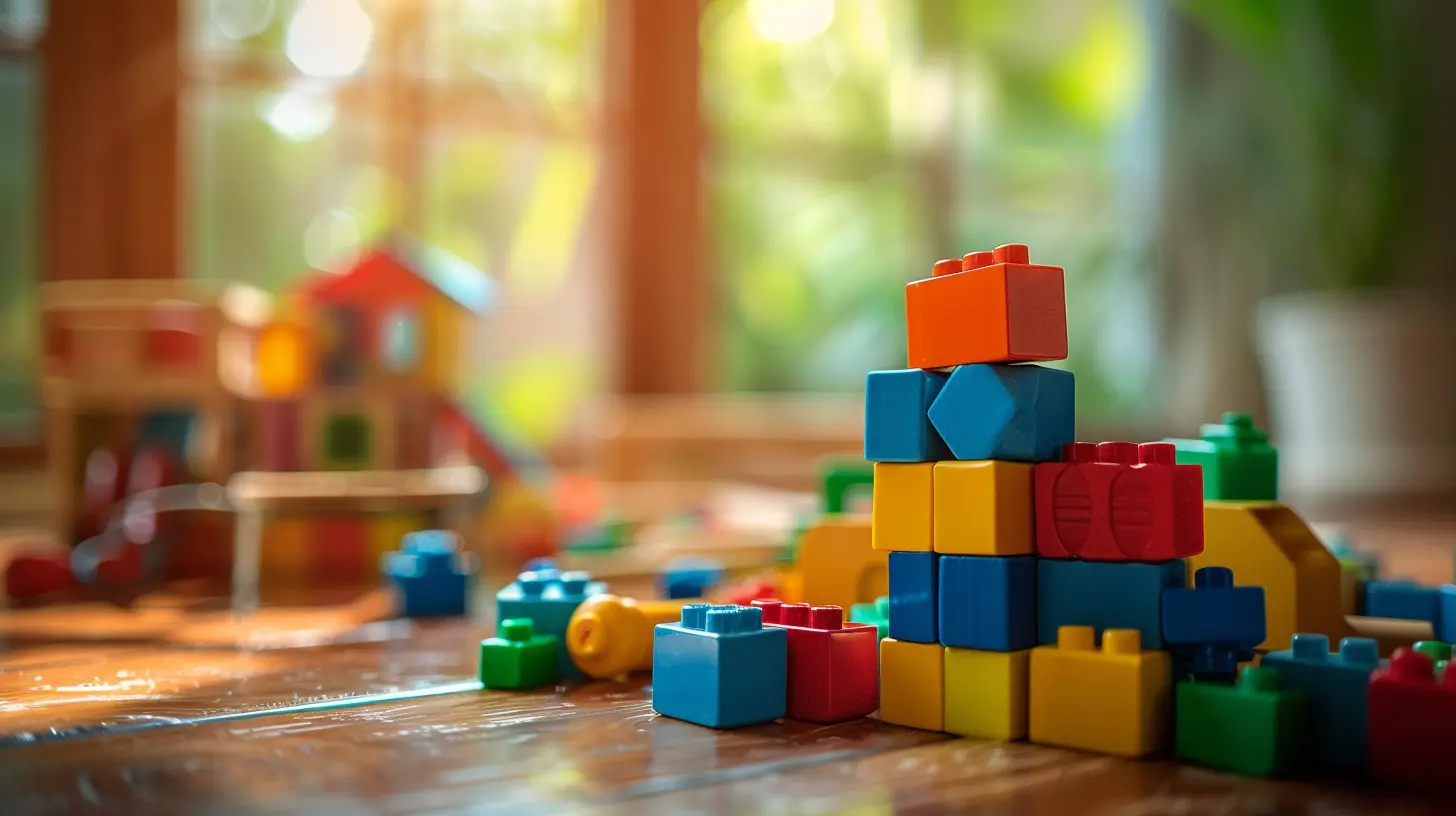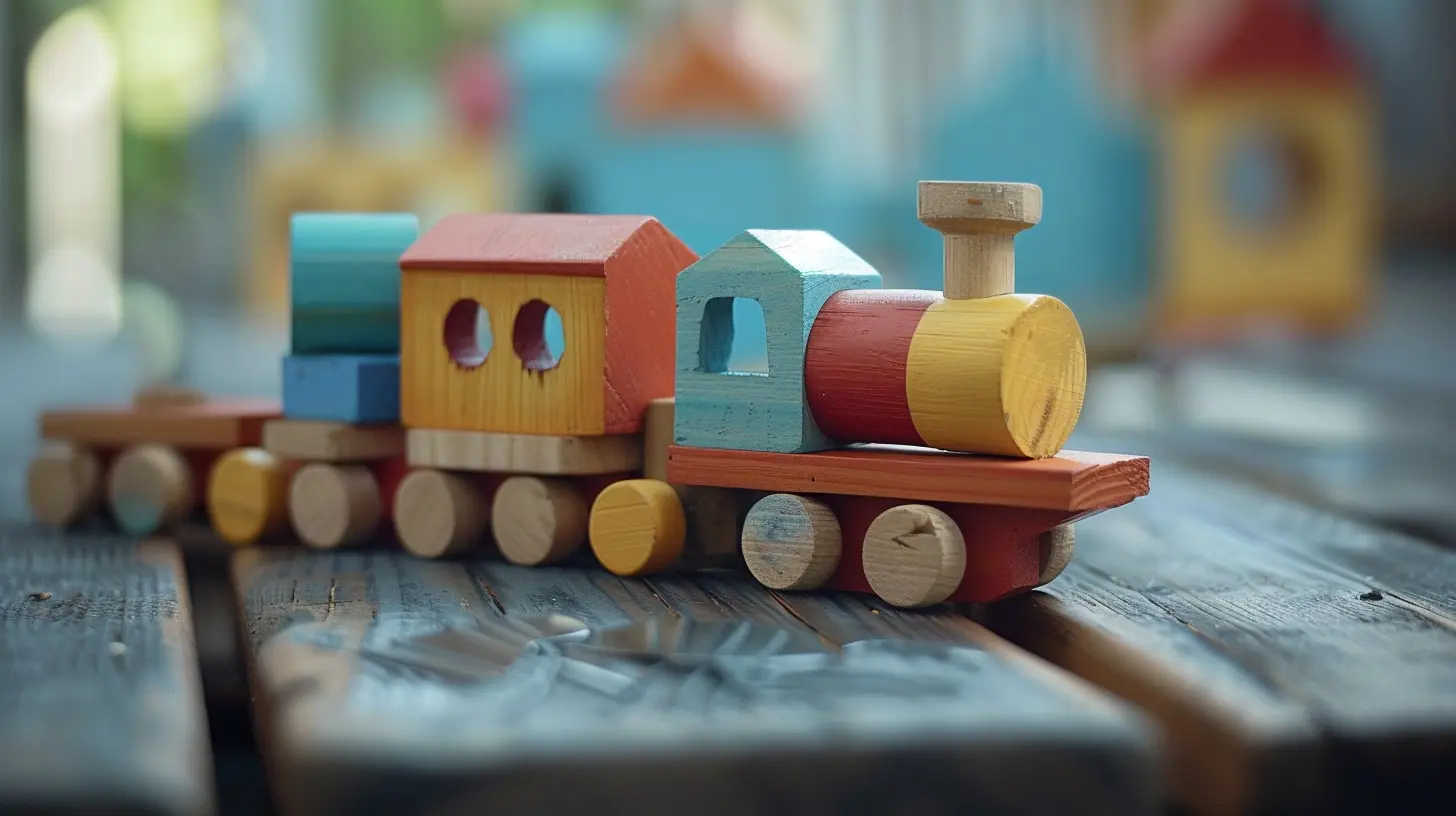15 March 2025
Ever watched your little one transform into a pirate, a doctor, or a superhero within a matter of seconds? That’s pretend play in action! It may just look like harmless fun, but it’s actually a critical part of your child’s growth. Pretend play isn’t just about keeping them entertained—it helps develop essential life skills that shape their future.
So, let’s dive into why pretend play is more than just adorable tea parties and epic space adventures.

What is Pretend Play?
Pretend play (also known as imaginative or make-believe play) happens when kids use their creativity to role-play different scenarios. Whether they’re hosting a stuffed animal tea party, playing house, or fighting off imaginary dragons, they’re engaging in a type of play that builds cognitive, social, and emotional skills.But why is this so important? Let’s break it down. 
Benefits of Pretend Play for Child Development
1. Boosts Cognitive Skills
When your child pretends to be a chef cooking up a storm in their toy kitchen, they’re doing more than just flipping plastic pancakes. They’re thinking critically, planning sequences, and enhancing problem-solving skills.Pretend play encourages:
- Decision-Making – "Should I serve spaghetti or pizza to my teddy bear?"
- Cause and Effect Thinking – "If I mix these colors together, what will I get?"
- Memory and Recall – "Last time I played doctor, I used this tool for check-ups!"
All these cognitive processes prepare kids for real-life problem-solving down the road.
2. Enhances Social and Emotional Development
Ever noticed how kids love playing "mommy and daddy" or pretending to be teachers? Through these role-playing scenarios, they learn how to navigate social interactions, understand different perspectives, and develop empathy.- Communication Skills – Talking to their "patients" while playing doctor helps them practice language and expression.
- Emotional Regulation – Pretending to soothe a crying baby doll teaches them empathy and patience.
- Conflict Resolution – Deciding who gets to be the superhero and who plays the villain fosters negotiation skills.
In short, pretend play helps kids grow into emotionally intelligent and socially adept individuals (and increases their chances of making lifelong friends!).
3. Sparks Creativity and Imagination
Give a child a cardboard box, and they might turn it into a spaceship, a castle, or even a race car. That’s the magic of imagination! Pretend play fuels creativity by allowing kids to think outside the box—sometimes literally.- Encourages Innovation – They learn that everyday objects can have endless possibilities.
- Builds Storytelling Skills – Inventing adventures strengthens their ability to craft stories and express ideas.
- Develops Original Thinking – Instead of following a set of rules, they create their own worlds and narratives.
Creativity isn’t just for artists—it’s a skill that powers future inventors, leaders, and problem solvers.
4. Strengthens Language and Communication Skills
Whether they’re playing shopkeeper, pirate, or astronaut, pretend play naturally expands a child’s vocabulary. They hear and use new words in context, improving both comprehension and expression.- Expands Vocabulary – "May I take your order?" introduces restaurant lingo.
- Practices Sentence Formation – "Captain, we have a problem!" helps with phrasing.
- Encourages Expressive Speech – Acting out different emotions makes communication more dynamic.
It’s like a fun, interactive language lesson—without the boring flashcards!
5. Supports Physical Development
You might not think of pretend play as exercise, but it absolutely is! Whether they’re running from a dragon, dancing at a royal ball, or building a pretend fort, they’re engaging in physical activity that improves coordination and motor skills.- Fine Motor Skills – Dressing dolls, stacking blocks, and using pretend kitchen utensils refine hand-eye coordination.
- Gross Motor Skills – Jumping, running, and balancing during their imaginary missions build strength and agility.
So, the next time your child zooms around the house as a superhero, remember—they’re getting a mini workout, too!
6. Builds Confidence and Independence
Through pretend play, children get to take charge of their world. Whether they’re running a pretend business or playing teacher, they’re making decisions and feeling in control. This boosts their self-esteem and sense of independence.- Encourages Leadership – Assigning roles and directing play boosts confidence.
- Teaches Responsibility – Playing "parent" or "doctor" instills a sense of care and duty.
- Promotes Problem-Solving – Navigating different scenarios helps them think on their feet.
Confidence built in make-believe worlds often translates into real-world courage later on. 
How to Encourage Pretend Play
Now that we know why pretend play is essential, how can we encourage it? Luckily, it doesn’t require expensive toys or elaborate settings—just a little creativity!1. Provide Open-Ended Toys
Toys that don’t have a fixed purpose encourage imagination. Items like building blocks, dolls, dress-up clothes, and play kitchens let kids create their own narratives.2. Use Everyday Household Items
A cardboard box can become a car, a spaceship, or a castle. Old clothes can turn into costumes. Pots and pans? Instant drum set!3. Join the Fun!
Sometimes, kids just need a little push. Play along by letting them serve you "tea," rescue you as a superhero, or read you a pretend story.4. Encourage Outdoor Adventures
Nature provides the best backdrop for imagination. A backyard can transform into a jungle, a pirate ship, or a fairy kingdom.5. Limit Screen Time
While screens can be educational, too much structured entertainment can stifle creativity. Giving kids free time without digital distractions encourages them to use their imagination more.
Final Thoughts
Pretend play isn’t just about fun and games—it’s a powerful tool for your child’s growth. From boosting creativity and social skills to enhancing cognitive development, imaginative play lays the foundation for lifelong learning.So next time you see your child talking to their stuffed animals or pretending to be a superhero, don’t dismiss it as just play. They’re building skills, exploring emotions, and crafting the foundation for their future—one imaginative adventure at a time!







Genevieve Walker
Absolutely! Pretend play sparks imagination and builds essential skills!
April 3, 2025 at 3:28 AM